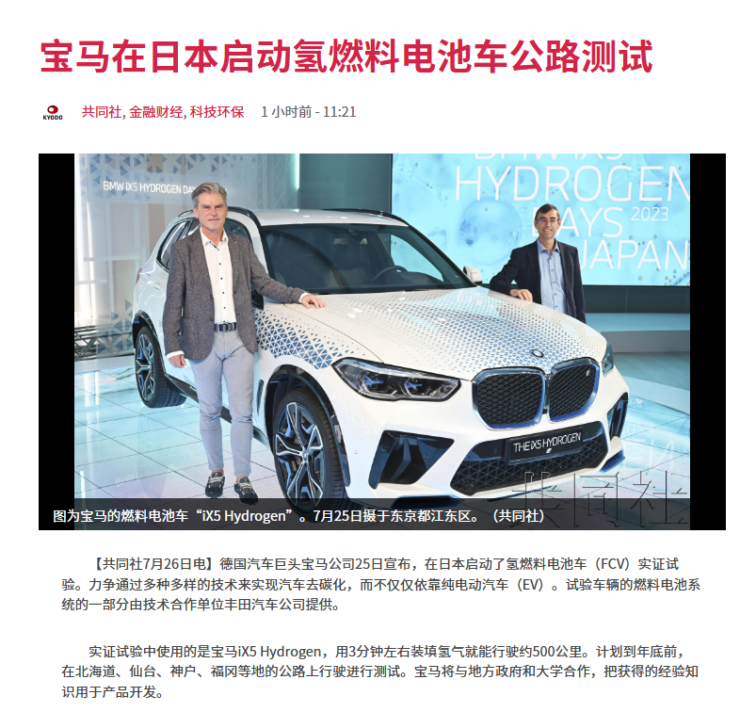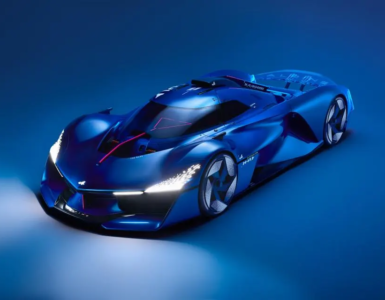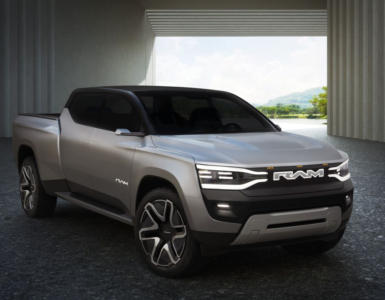BMW hydrogen powered car launches road test in Japan.
The model participating in this test is the BMW iX5 Hydrogen, part of its fuel cell system technology provided by Toyota. The vehicle can be filled with hydrogen in about three minutes and has a driving range of about 500 kilometers. The aim of the test is to decarbonize vehicles through “a variety of technologies” rather than relying solely on pure electric vehicles.
According to reports, BMW plans to conduct road tests in Hokkaido, Sendai, Kobe, Fukuoka and other places on the highway by the end of the year, and cooperate with local governments and universities to use the experience accumulated in the test for product development.
The Japanese government on the 6th in the relevant cabinet meeting decided to revise the “hydrogen basic strategy”. The new strategy shows that in the next 15 years, the Japanese government and the private sector will invest a total of 15 trillion yen to promote the improvement of the hydrogen energy supply chain.
🔥 What about we co-host a webinar? Let's educate, captivate, and convert the hydrogen economy!
Hydrogen Central is the global go-to online magazine for the hydrogen economy, we can help you host impactful webinars that become a global reference on your topic and are an evergreen source of leads. Click here to request more details
Hydrogen is regarded as a next-generation clean energy source because it emits no carbon dioxide when burned, and the Japanese government plans to use hydrogen as the main fuel for thermal power stations and fuel cell vehicles (FCVs). In addition, the Japanese government hopes to support the promotion of the development of the ammonia and synthetic fuel industries that use hydrogen as a raw material.
BMW is one of several automotive companies bullish on the potential of hydrogen fuel cells, others include Toyota and Hyundai, but Tesla CEO Musk is not bullish on the energy source, having tweeted that “Fuel Cells = Selling for Dummies,” and “Hydrogen for Dummies makes no sense! ” and described it as “the dumbest energy storage I can imagine”.
READ the latest news shaping the hydrogen market at Hydrogen Central
BMW’s hydrogen-powered car launches road test in Japan, July 25, 2023








